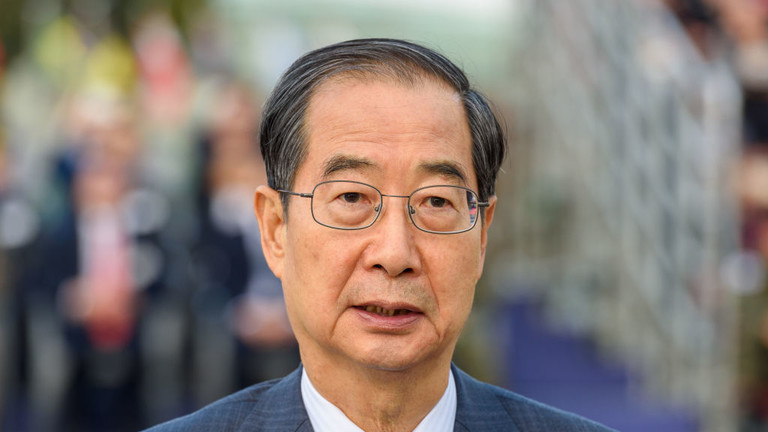World
South Korean Parliament Votes to Impeach Acting President

In a dramatic political move, South Korea’s parliament votes to impeach the acting president, intensifying the nation’s political crisis.
South Korea’s Parliament has voted to impeach the acting head of state, Han Duck-soo, due to his refusal to appoint justices to the Constitutional Court. According to local media reports on Friday, these appointments are crucial for finalizing the impeachment process of Han’s predecessor, President Yoon Suk Yeol, who was removed from power earlier this month.
Speaker Woo Won-shik announced in a televised statement that the motion to impeach Han, filed by the opposition Democratic Party, was approved with 192 votes in favor within the 300-member National Assembly.
On December 14, the National Assembly voted to impeach Yoon following his brief implementation of martial law. Earlier, on December 3, he had declared emergency martial law, alleging that the opposition was preparing a “rebellion” and accusing them of being sympathetic towards North Korea.
The impeachment decision by the National Assembly resulted in Yoon’s automatic suspension from office. However, for the process to be finalized, it must receive approval from the Constitutional Court. Currently, this nine-member panel is missing three judges and can technically proceed with just six members. Nevertheless, under South Korean law, a single dissenting vote would reinstate Yoon to office.
As the interim head of state, Han was anticipated to appoint justices to fill vacancies following requests from the opposition party, which opposes Yoon’s reinstatement. On Thursday, the National Assembly approved an appointment consent bill for three candidates: two nominated by the opposition and one by the ruling conservative People Power Party (PPP). However, during an emergency press conference immediately afterward, Han stated that he could not proceed with appointing the justices at once because these nominees lacked support from PPP; thus their appointment might disrupt constitutional order.
He argued in his address that our Constitution and laws consistently uphold the principle of avoiding significant exclusive presidential powers, such as appointing members to constitutional institutions. He emphasized that any such decisions require a consensus between both ruling and opposition parties within the National Assembly, which represents the people. In reaction to this stance, the opposition suggested impeaching Han as well.
“It is evident that Prime Minister and acting President Han Duck-soo lacks both the qualifications and the determination to uphold the Constitution,” stated Park Chan-dae, floor leader of the Democratic Party, in a statement announcing the motion.
Friday’s vote represented the first instance in South Korea’s contemporary history where an impeachment motion has been filed against an acting president. The nation’s finance minister, Choi Sang-mok, is now anticipated to assume the role of acting president.
